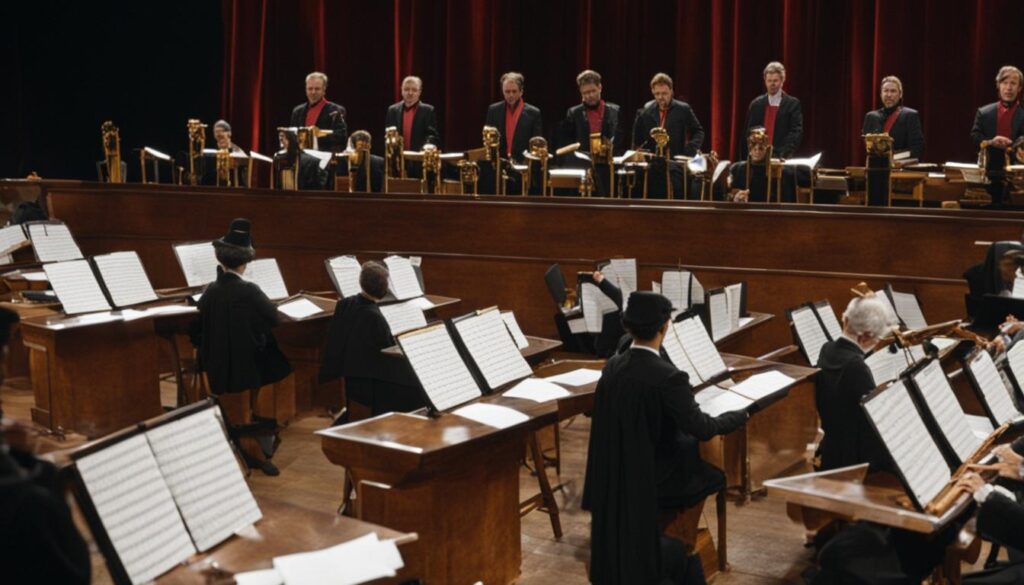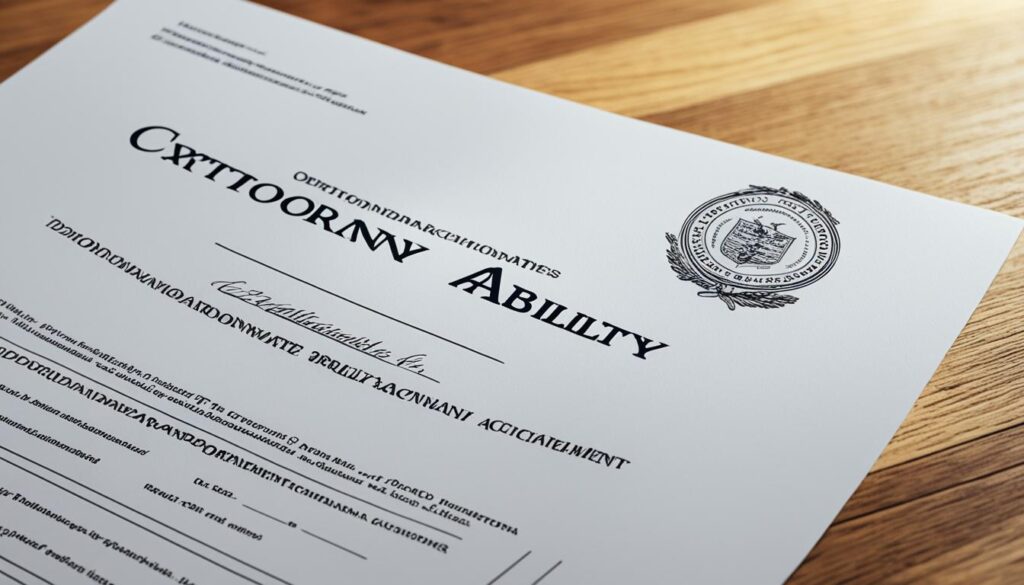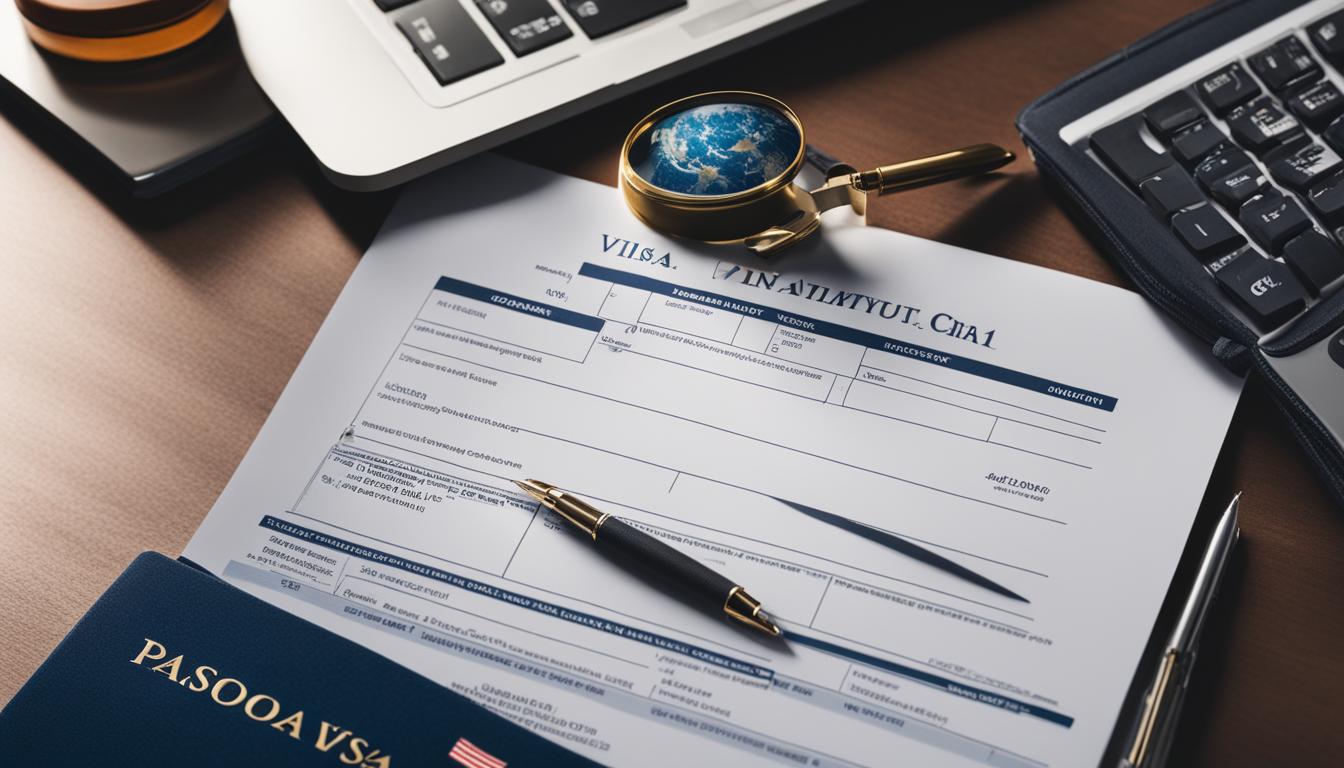The O-1 Visa is a specialized pathway designed for nonimmigrants who have demonstrated exceptional skill and recognition in their fields of endeavor. Catering to the unique talents of individuals with Extraordinary Ability, the O-1 Visa empowers a diverse set of professionals to engage in work within the USA. If you have made significant contributions to sciences, arts, education, business, or athletics, or have garnered national or international acclaim in film or television, the O-1 Visa could be your avenue for realizing professional aspirations in the United States.
Beginning the O-1 Visa application process can appear formidable. However, with accurate guidance and understanding of the requirements, professionals with extraordinary abilities can navigate this route effectively. As such, it is essential to possess a thorough comprehension of the application’s intricacies and the necessary evidence to substantiate your claim of extraordinary achievement to qualify for this esteemed Work Visa USA category. This guide serves as an indispensable resource for the aspirants who reflect the zenith of success and expertise in their respective domains.
Understanding the O-1 Visa: Immigration Options for Extraordinary Ability
For the gifted few whose talents shine above the rest, the O-1 visa presents a viable Immigration Option to work and live in the United States. This visa is designed for individuals who possess Extraordinary Ability across various professional realms. To be considered for the O-1 visa, applicants are required to showcase their outstanding achievements that place them at the forefront of their fields.
The O-1 visa classification is divided into two distinct categories: the O-1A and O-1B. This differentiation accommodates the variety of disciplines in which extraordinary individuals may excel. The O-1A category targets those with unparalleled expertise in the domains of science, education, business, or athletics. On the other hand, the O-1B is tailored for those who have demonstrated extraordinary achievements in the arts, or have garnered significant recognition in the motion picture or television industry.
- O-1A Visa: Geared towards professionals with noteworthy achievements in science, education, business, and athletics. These applicants are expected to illustrate a level of expertise that indicates they are leading experts within their specific fields.
- O-1B Visa: Reserved for the crème de la crème in the arts world or those who have attained a high level of accomplishment in film or television, substantiated by widespread acclaim or recognition.
To meet the stringent O-1 Visa Requirements, one must provide evidence of extraordinary accomplishment: award recognitions, significant contributions to their field of expertise, and endorsements from authoritative bodies. Whether you are a Nobel laureate, an Olympic medalist, or an Oscar winner, the O-1 visa stands as a testimony to your unparalleled skills and international stature.
This selective visa classification opens the door to the United States for those whose remarkable skills not only enrich their professional field but also bolster innovation and cultural exchange on American soil.
Understanding the nuanced requirements of the O-1 visa can be critical for securing entry into the U.S. under this prestigious status. Immense effort in documentation and legal intricacies is imperative, positioning the O-1 visa as a gateway for top-tier professionals seeking to pursue their career aspirations on American ground.
Eligibility Criteria for the O-1 Visa: Are You Qualified?
Securing an O-1 Visa, renowned as the visa for extraordinary ability, demands distinct prerequisites that set it apart from other work visa USA options. These criteria cater to a niche category of individuals who demonstrate exceptional prowess in their fields—a testament to the visa’s exclusivity and the stringent O-1 visa process.

Definition of Extraordinary Ability in Various Fields
Extraordinary ability is a term that encapsulates the essence of what the O-1 Visa represents. Those in the arts must show a high degree of skill, while those in fields like sciences or athletics must provide evidence of a significant level of expertise, one that places them at the apex of their professions. The USCIS Policy Manual serves as a foundational guide for what constitutes such level of prominence or distinguished merit.
Standards and Evidence for Proving Extraordinary Ability
The bar for proving extraordinary ability is undoubtedly high. It requires a composite of documentation as proof, which may include prestigious awards—national or international in scope, exclusive memberships reflecting peer recognition, noteworthy contributions to their field, and a salary commensurate with their high standing. These O-1 visa requirements establish an individual’s eligibility concerning their sustained acclaim and acknowledgment within their professional circles.
Comparison to Other Work Visas
Immigration options vary widely, but none are quite like the O-1 Visa, which specifically serves those of extraordinary talent or achievement. The O-1 distinguishes itself through a demanding proof standard and the comprehensive evidence it requires. Other visas may be more common, yet for the elite few who can demonstrate their high-caliber capabilities, the O-1 Visa becomes the preferred immigration pathway, allowing them to leverage their extraordinary abilities within the United States.
Breaking Down the O-1 Visa Application Process
Embarking on an O-1 Visa Application is a journey that begins with the sponsorship from a U.S. employer or agent, who is responsible for filing Form I-129, Petition for a Nonimmigrant Worker. The complexity of the O-1 Visa Process is evident in the level of detail required throughout the documentation stage, insisting on applicants to prove their extraordinary ability. Let’s explore the crucial steps involved in the application process:
- Choosing the Right Petitioner: A U.S. employer, a U.S. agent, or a foreign employer through a U.S. agent may act as the petitioner for the O-1 Visa candidate. Each has a specific role and set of requirements they must fulfill.
- Filing the Form I-129: The petitioner must file Form I-129 at least 45 days before the employment start date, but not more than one year in advance. Precise timing is vital as it influences the adjudication process.
- Compiling Evidence: Substantial evidence is needed to demonstrate the petitioner’s exceptional ability in their field, such as awards, publications, and testimonials from peers.
- Consultation Requirement: A written advisory opinion from a peer group, labor organization, or a person with expertise in the applicant’s area of ability is often required to solidify the claim of extraordinary ability.
Throughout the O-1 Visa Process, applicants and petitioners are advised to maintain organized documentation and careful attention to USCIS instructions, accommodating the intricacies and stringent review of the application. Following is a detailed breakdown of the elements required for a successful petition:
| Requirement | Description | Example of Evidence |
|---|---|---|
| Form I-129 | Official petition form for nonimmigrant workers | Fully completed and signed, submitted within the specified time frame |
| Consultation | Letter from an appropriate peer group or expert | Opinions from industry-specific organizations verifying the applicant’s abilities |
| Itinerary | Detailed schedule of events or activities | Outline of engagements or performances during the visa period |
| Contracts | Copies of written contracts or summaries of oral agreements | Documentation demonstrating the terms of engagement for services in the U.S. |
| Evidence of Extraordinary Ability | Proof of the applicant’s extraordinary achievements | Awards, critical roles, leading or essential participation in distinguished events |
| Supplementary Documentation | Additional supporting materials | Letters of recommendation, media articles, and other third-party affirmations |
In summary, the O-1 Visa Application and its subsequent approval pivot on meticulous documentation and the provision of compelling evidence to establish the applicant’s prominence in their field. Each case is unique, and expert advice may be sought to ensure the process is navigated with utmost precision.
Essential Documentation for the O-1 Visa Application
When applying for an O-1 Visa, which recognizes individuals with extraordinary ability entering the Work Visa USA arena, it is critical to submit the proper documentation that not only satisfies O-1 Visa Requirements but also presents a compelling case for the applicant’s exceptional talents. Immigration Lawyers often stress the importance of precision and thoroughness in compiling these documents to ensure a smooth O-1 Visa Application process.
Role of Consultations and Peer Groups
Secure written endorsements from peer groups or authoritative figures in the applicant’s field are essential, particularly for candidates in the motion picture or television industries. These endorsements should reflect the applicant’s remarkable skill and standing within their professional community. Immigration Lawyers can provide guidance on ensuring these testimonials are credible and will meet the stringent scrutiny of immigration authorities.
Contracts and Itineraries: Building Your Case
The provision of a detailed contract or a comprehensive summary of oral agreement terms is pivotal. Accompanying itineraries must also be provided, outlining the specifics of engagements and activities requiring the applicant’s participation in the United States. Highlighting the necessity of the applicant’s unique skills for these events further establishes the argument for their extraordinary ability.

The O-1 Visa and the Entertainment Industry: A Closer Look
The Entertainment Industry is a realm where talent and recognition are key indicators of success and eligibility for an O-1 Visa. As the bar for extraordinary ability is set high, applicants in film and television must provide substantial and compelling evidence to meet the stringent criteria outlined by the United States Citizenship and Immigration Services (USCIS).
Demonstrating Extraordinary Achievement in Film and Television
Securing an O-1 Visa in the competitive scape of the Entertainment Industry requires more than just talent; it necessitates a reputation for being at the pinnacle of one’s field. Potential O-1B Visa beneficiaries must demonstrate extraordinary achievement through a variety of evidences such as prestigious awards, notable roles, critical reviews, and other significant recognitions that establish their prominence.
Importance of Advisory Opinions from Relevant Organizations
The expertise of industry-specific labor and management organizations becomes invaluable when validating a candidate’s merit. These organizations provide advisory opinions that critique the applicant’s contributions and achievements in the Entertainment Industry, offering a weighty endorsement to their O-1 Visa Process.
Attaining an O-1 Visa stands as a testament to one’s exceptional skill and recognized stature within the Entertainment Industry. An in-depth understanding of the O-1 Visa Process and its requirements is crucial for those aspiring to elevate their work to an international platform.
Navigating the Legal Landscape: Working with Immigration Lawyers
The pursuit of an O-1 Visa carries with it a labyrinth of legalities, stringent criteria, and precise documentation—all demanding meticulous attention. Those aiming to secure this visa often enlist the expertise of immigration lawyers, professionals skilled in the arcane nuances of immigration law and the O-1 Visa’s specificities. Their assistance can bridge the gap between exceptional potential and legal fulfillment.
An adept immigration attorney ensures that all facets of the O-1 Visa application align with the prescribed O-1 Visa requirements. Their vigilance encompasses a spectrum of actions, from procuring correct evidentiary documents to crafting a strategic legal pathway tailored to each applicant’s unique credentials. Let us explore the roles and benefits of engaging immigration legal counsel in the pursuit of an O-1 visa.
- Strategic Planning:Guiding applicants through a multifaceted strategy tailored to highlight their extraordinary abilities.
- Document Compilation:Aggregating the voluminous paperwork required to substantiate one’s claim for extraordinary ability.
- Regulatory Compliance:Ensuring that all elements of the visa process comply with the United States Citizenship and Immigration Services (USCIS) regulations.
- Response to Legal Queries:Offering clarity and responses to intricate legal questions that may arise from both petitioners and beneficiaries.
- Litigative Representation:Representing clients in judicial proceedings should any legal challenges or denials surface.

“Engaging with an immigration lawyer can spell the difference between an application that prospers under legal scrutiny and one that succumbs to the complexities of immigration policy.” – Industry Expert on O-1 Visa Strategy
Additionally, the table below delineates key contributions of immigration lawyers versus self-navigation of the O-1 Visa process.
| Aspect of O-1 Visa Process | Self-Navigation | With Immigration Lawyers |
|---|---|---|
| Understanding Requirements | Potential for misinterpretation of visa criteria | Expert elucidation of specific legal requirements |
| Preparation of Evidence | Possibility of inadequate or irrelevant documentation | Insightful selection and preparation of compelling evidence |
| Navigating Complexities | Challenges in addressing legal intricacies | Skilled navigation through procedural and policy complexities |
| Legal Recourse | Limited options and understanding of legal rights following setbacks | Availability of robust legal options and advocacy |
| Time Management | Possibility of lengthy application due to errors or omissions | Efficient process management leading to timely application submission |
In conclusion, while the path to an O-1 Visa is fraught with legal hurdles, the guiding hand of a proficient immigration lawyer can illuminate the way. Such legal assistance is more than a mere helping hand but a potent force multiplier for aspiring extraordinary individuals.
Utilizing Agents for the O-1 Visa Application
The pathway to securing an O-1 Visa for individuals with extraordinary ability often involves intricate procedures and precise adherence to USCIS guidelines. An integral part of this process is the designation of an agent to facilitate the application. This agent can significantly affect the success of an O-1 Visa petition, emphasizing the need for potential applicants to understand their role and the requirements of agent-filed petitions.
Defining the Role of an Agent or Representative
Agents play a multifaceted part in the O-1 Visa application process, with the capability to represent the interests of both the applicant and a US employer. These representatives step in as liaisons that not only bridge communication gaps but also ensure compliance with the legal and procedural standards set forth by the immigration authorities. The agent’s role might encompass anything from an actual employer to an authorized negotiator for contractual agreements required for the beneficiary to render their services in the US.
Agent-Filed Petitions: Process and Requirements
For an O-1 Visa petition to be filed by an agent, the process consists of submitting Form I-129 along with substantial evidence to substantiate the applicant’s eligibility. This evidence must showcase the extraordinary abilities of the individual, proving their eligibility for this specialized immigration option. Immigration lawyers often play a pivotal role in formulating a compelling case, presenting documentation that satisfies the USCIS’s rigorous standards. The table below delineates the key responsibilities and requirements for agents throughout the O-1 Visa process:
| Agent Responsibility | Requirements | USCIS Compliance |
|---|---|---|
| Acting as Employer/Representative | Contractual agreements or employer authorization | Proof of agent’s authority to act |
| Submission of Form I-129 | Complete application with mandatory fee | Accurate and timely filing |
| Documentation of Extraordinary Ability | Award recognitions, peer reviews, high remuneration proof | Evidence of national or international acclaim |
| Liaison with Immigration Lawyers | Legal strategy and procedural guidance | Ensuring all legal requirements are met |
O-2 Visa: Assisting Individuals of Extraordinary Ability
The O-2 Visa plays a crucial supporting role in the realm of U.S. immigration, specifically designed to accompany holders of the O-1 Visa Application. This Work Visa USA category upholds the purpose of enabling individuals with extraordinary abilities, or their essential support personnel, to facilitate performances and projects within the United States. Tailored to support staff with unique expertise, the O-2 Visa serves as a foundation for many collaborations in fields that require not just talent, but also dedicated support to achieve the extraordinary.

An O-2 Visa applicant must exhibit skills and a track record of working with the O-1 individual that are of such a specialized nature that a U.S. resident worker would not suffice as a replacement. This necessity for the O-2 support person must be clearly spelled out in the visa documentation, linking their indispensable role to the success of the O-1 Visa holder’s undertakings in the United States.
Integral to every O-2 Visa application is the demonstration that the support provided by the O-2 applicant is essential to the completion or execution of the O-1 Visa beneficiary’s planned events or performances, particularly in sensitive areas like film production or live performances.
- Essential technical or artistic skills
- In-depth experience with the O-1 individual
- Proof of necessity for the O-1’s event or performance
The O-2 visa application is steeped in intricacies that compel applicants to meticulously prove their value and uniqueness. With the excitement of the entertainment industry or the prestige of scientific demonstrations on the line, the role of the support personnel holding an O-2 visa becomes undeniably prominent. Whether the project is on the grand stages of Hollywood or within the innovative laboratories of Silicon Valley, the O-2 Visa ensures that every O-1 Visa holder’s achievement is well-supported by a team that understands the vision and possesses the caliber to bring it to fruition.
Renewals and Extensions: Maintaining Your O-1 Visa Status
For talented individuals whose exceptional skills have granted them the opportunity to work in the United States under the O-1 Visa, it is crucial to understand the intricacies of maintaining legal status through timely O-1 Visa Renewal and O-1 Visa Extension. The process for extending O-1 visa status is a critical aspect of immigration options for those who wish to continue their professional endeavors without interruption.
Criteria for Extension of Stay
To secure an O-1 Visa Extension, petitioners must present a compelling case that the ongoing or subsequent activities or events are a continuation of the original endeavor. The United States Citizenship and Immigration Services (USCIS) allows for incremental extensions, ensuring candidates can achieve their project’s goals or fulfill their assignment in the U.S. In line with the O-1 Visa Process, the extension application must be filed before the current visa expires, with necessary evidence backing the need for additional time.
What Happens After Approval: Next Steps
Once an O-1 Visa extension is approved, the beneficiary can proceed with the next phase of their Work Visa USA journey. This typically involves coordination with the Department of State and possibly a visit to a U.S. consulate or embassy for visa stamping, adhering to the specific consulate’s scheduling and processing times. Following a successful O-1 Visa application and renewal process, the visa holder is granted a tenure in the country within the stipulated approval period, strictly for the purpose and duration of the professional assignment.
Conclusion
The journey to securing an O-1 Visa is one marked by a distinct demonstration of exceptional talent and a rigorous application process that is navigated successfully by few. It is a prestigious immigration option, granting individuals with extraordinary ability and significant achievements the opportunity to work within the United States. From academics and athletes to artists and business leaders, this visa category serves as a beacon of opportunity for those recognized as the best in their fields—a testament to their dedication and outstanding contributions.
Given its complexity, applicants often partner with adept immigration lawyers to guide them through the maze of detailed documentation and stringent legal requisites. Professional legal support can be the difference between the approval or denial of an O-1 Visa petition. With stakes so high, the value of thorough preparation and expert assistance cannot be overstated, especially in a landscape where precision and adherence to protocol are paramount.
Ultimately, the O-1 Visa encapsulates the essence of American recognition of global talent and excellence. It offers a Work Visa USA alternative that upholds the nation’s standards of innovation and exceptionalism. For those who have earned acclaim in their professional pursuits, the O-1 Visa represents not just an immigration option, but a gateway to new horizons of achievement and international collaboration.
FAQ
Q: What is an O-1 Visa and who is it for?
A: The O-1 Visa is a nonimmigrant visa specifically for individuals who possess extraordinary ability in the sciences, arts, education, business, athletics, or who have a proven record of extraordinary achievement in the film or television industry. It allows such individuals to work temporarily in their field of expertise in the United States.
Q: What are the requirements to qualify for an O-1 Visa?
A: To qualify for an O-1 Visa, applicants must demonstrate that they have sustained national or international acclaim and recognition for achievements in their field of expertise by presenting evidence such as prestigious awards, membership in selective associations, noteworthy contributions to their field, high remuneration for services, and substantial recognition from peers, governmental organizations, or other recognized experts.
Q: How does the O-1 Visa compare to other work visas?
A: The O-1 Visa is distinct from other work visas in that it caters exclusively to individuals of extraordinary ability or achievement. It has more rigorous eligibility criteria and requires a higher standard of proof to establish the applicant’s level of expertise and acclaim, compared to other visa categories.
Q: What is the process to apply for an O-1 Visa?
A: The O-1 Visa application process begins when a U.S. employer or agent submits Form I-129, Petition for a Nonimmigrant Worker, on behalf of the individual. It includes providing an extensive list of documents demonstrating the applicant’s extraordinary ability or achievement, expert consultations, a contract or summary of terms, and an itinerary of planned activities or events in the U.S.
Q: Why are consultations with peer groups or experts required for an O-1 Visa application?
A: Consultations with peer groups or recognized experts are necessary to provide an advisory opinion regarding the beneficiary’s qualifications and achievements. This expert validation is a critical part of the vetting process that lends credibility to the claims of extraordinary ability or achievement.
Q: Can an agent apply for an O-1 Visa on behalf of a beneficiary?
A: Yes, agents can file O-1 Visa petitions on behalf of the beneficiary. They can act as the actual employer, representative of the employer, or an authorized entity for the purposes of the visa application. Agents must comply with USCIS requirements and submit all necessary documents to substantiate the extraordinary abilities of the individual.
Q: What is the purpose of the O-2 Visa?
A: The O-2 Visa is designated for the personal or technical staff accompanying O-1 Visa holders, who provide essential support to the O-1 individual’s performance. O-2 applicants must prove that their skills and experience with the O-1 Visa holder are unique and are not generally available within the U.S. workforce.
Q: How can O-1 Visa holders extend their stay in the U.S.?
A: O-1 Visa holders may apply for extensions in one-year increments to continue or complete the same event or activity for which they were initially granted the visa. The extension application must be submitted timely to avoid impacting the visa holder’s authorized stay and employment activities in the U.S.
Q: What steps should be taken after an O-1 Visa petition is approved?
A: After O-1 Visa petition approval, the individual must apply for the visa at a U.S. Embassy or Consulate in their home country, pay the applicable fees, and prepare for any required interviews or additional documentary submissions, based on the consulate’s specific processing instructions and times.
Q: Why might one seek help from immigration lawyers for an O-1 Visa application?
A: Due to the complex nature of the O-1 Visa, its stringent criteria, and the detailed documentation required, many applicants elect to work with immigration lawyers. Lawyers can assist in navigating the legal processes, preparing a persuasive case, and ensuring all procedures are correctly followed to increase the chances of approval.
Source Links
- https://www.uscis.gov/working-in-the-united-states/temporary-workers/o-1-visa-individuals-with-extraordinary-ability-or-achievement
- https://www.hio.harvard.edu/o-1-visa-individuals-extraordinary-ability
- https://cbkimmigration.com/achievement-based/o-1-temporary-visa/general-o-1-criteria-requirements/

